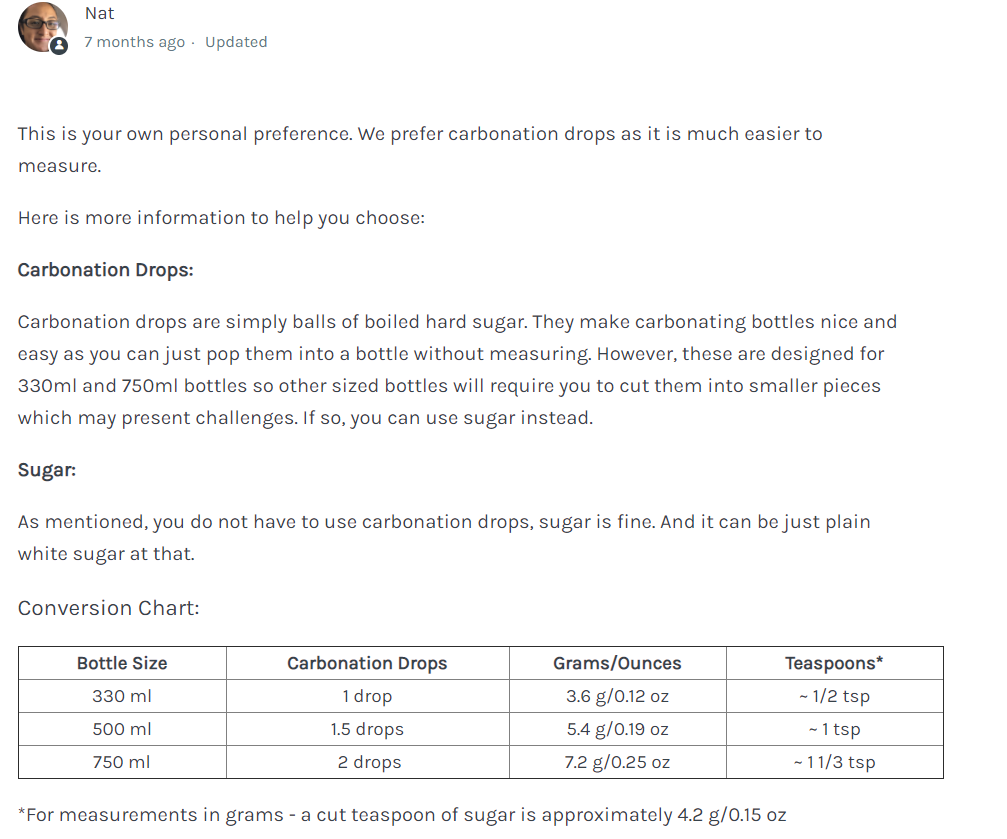So, heres the scoop. I used Mangrove Jacks Dubbel Extract kit, it's almost ready to be bottled so, as it is written in their manual I should use 2 tsp of sugar per 2L. So for the whole 12L of wort I should use 12 tsp. Converting that to grams, accounting for the ingredient(dextrose(powdered sugar)) 12tsp=30.66g.
_________Here is the problem. Using the priming sugar calculator (Bottling Priming Calculator) I get this:

So taking into account that its a Dubbel, using the Belgian Ale Scale for CO2 Vol. (1.9-2.4 volumes)
as well as taking into account that the wort's temperature will be 18C/64F, the calculation comes at 57.2g(corn sugar). That's almost double the amount Mangroove Jacks manual recommended!
Does anyone know why?
and which calculation do you think would be better to use?
Mangrove Jacks Manual:

_________Here is the problem. Using the priming sugar calculator (Bottling Priming Calculator) I get this:

So taking into account that its a Dubbel, using the Belgian Ale Scale for CO2 Vol. (1.9-2.4 volumes)
as well as taking into account that the wort's temperature will be 18C/64F, the calculation comes at 57.2g(corn sugar). That's almost double the amount Mangroove Jacks manual recommended!
Does anyone know why?
and which calculation do you think would be better to use?
Mangrove Jacks Manual:





![Craft A Brew - Safale S-04 Dry Yeast - Fermentis - English Ale Dry Yeast - For English and American Ales and Hard Apple Ciders - Ingredients for Home Brewing - Beer Making Supplies - [1 Pack]](https://m.media-amazon.com/images/I/41fVGNh6JfL._SL500_.jpg)




















































